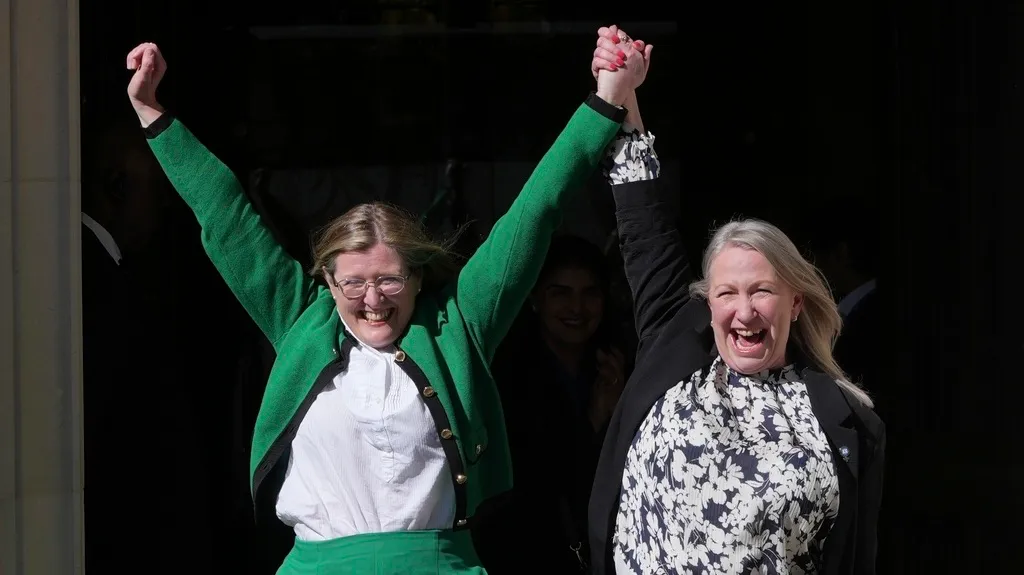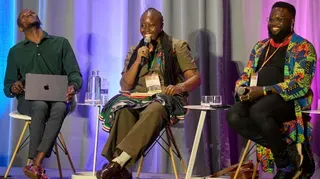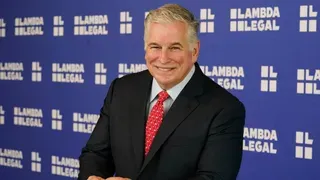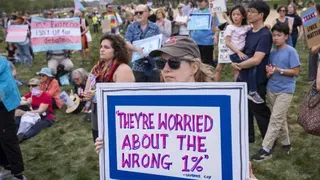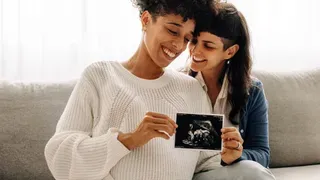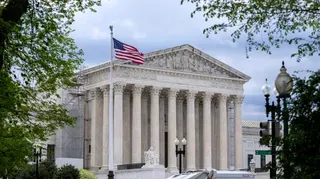November 17, 2012
Maryland's Marriage Success
Chris Sosa READ TIME: 4 MIN.
The dust is beginning to settle after Maryland voters approved Question 6, a referendum on the Civil Marriage Protection Act, which grants same-sex couples access to Maryland marriage licenses.
That victory in Maryland, a state with a sizeable African-American population and a state that borders the South, may have some activists wondering whether tactics used in Maryland can be adopted in other states seeking to pass marriage-equality laws.
The law, signed in March and having withstood the referendum effort, takes effect Jan. 1, 2013. Same-sex couples wanting marriage licenses must contact the Circuit Court Clerk's Office in the county where they plan to wed. Fees for the license vary from county to county. Under the law, no church or religious organization is forced to recognize a marriage that violates its beliefs or convictions.
According to official returns from the Maryland Board of Elections website, Maryland voters approved the Civil Marriage Protection Act by a vote of 52 percent in favor to 48 percent against. The measure passed in six jurisdictions: Baltimore City; and Baltimore, Anne Arundel, Howard, Frederick and Montgomery counties. It also came close to passing in Kent County, on the Eastern Shore, and in Prince George's County, a majority-African-American jurisdiction, surpassing many political observers' expectations.
But those who worked on the campaign to pass the Civil Marriage Protection Act, first as a law through the General Assembly and then at the ballot box through the ''Vote for 6'' campaign, said they were positive the measure would pass.
''All along, the internal and most of the public polling was hovering at or above 52 percent,'' says Kevin Nix, a spokesman for the Human Rights Campaign (HRC). ''In the final two weeks, you could see that the people on the ground, not with the campaign, seemed to feel better about it.''
As the nation's largest LGBT civil rights organization, HRC donated money and staff to help organize and assist local groups, including representatives of pro-LGBT religious organizations, labor and community organizations, in fighting for the legislative passage of the Civil Marriage Protection Act and the passage of Question 6.
Nix says that one of the lessons from Maryland's fight is that polls showing majority support for marriage equality were essentially correct. In other states, polling has often been unreliable, showing more LGBT support than actually exists on Election Day.
''I think it debunks that myth that the polls are wrong,'' Nix says. He adds that exit polls show a quarter of self-identified Republicans supported Question 6 - a substantial number - particularly in more politically conservative counties such as Frederick and Anne Arundel. The ''Vote for 6'' campaign was successful in fostering support among African-American voters across the state, Nix continues, pointing to wins in Baltimore City and Prince George's County; and substantial support among African-Americans in Charles and Calvert counties, where support for Question 6 garnered 45 percent of the vote.
''If you really studied the state and how people viewed the issue, and what we needed to do, the path was pretty clear,'' says Nix.
''Even Rev. McCoy said he thought the message of the pro-Question 6 side, focusing on equality and fairness, resonated with African-Americans,'' Nix says, referring to a Washington Post interview which Derek McCoy, the leader of the anti-Question 6 Maryland Marriage Alliance, said he thought ''the targeted ads toward the African-American community helped to get just enough black support to win.''
According to Fox News exit polls, whites, 60 percent of the Maryland electorate, supported Question 6 by a 54-46 margin; while black voters, making up 28 percent of the electorate, opposed it by a 54-46 margin. But the same exit poll shows a split along gender lines within the black community, with black women narrowly approving Question 6 by a 51-49 margin and black men voting against it by a 60-40 margin.
The ballot language for Question 6 was clear with regard to what the law would do and the religious protections it provided, Nix says of the variables that led to the win. When asked whether other states should adopt Maryland's marriage-equality tactics, Nix points out that facts on the ground in each state may dictate whether a particular argument in favor of marriage equality is salient.
By comparison, he says, the Maryland Marriage Alliance and its chief backer, the National Organization for Marriage (NOM), relied on a ''campaign-in-a-box'' that utilized nearly identical ads and talking points that had been successful in banning same-sex marriages in other states - not only in Maryland, but in Minnesota, Washington and Maine - which also faced marriage-related ballot measures.
''I think the individual message matters, and the messenger matters just as much,'' Nix says.
Also giving marriage equality a boost was President Obama's endorsement, inclusion of it in the Democratic Party's official platform, and the advocacy of Maryland politicians such as Gov. Martin O'Malley (D) and Baltimore Mayor Stephanie Rawlings-Blake (D), says Nix.
Todd Eberly, assistant professor of political science and public policy at St. Mary's College of Maryland, said before the vote that the success or failure of the marriage-equality law would likely dictate the political futures of some Maryland Democrats, particularly those who were involved in the legislative wrangling. For instance, Eberly said, O'Malley, who helped spur the 2012 legislative effort after a marriage-equality bill failed to pass the House of Delegates in 2011, was tied to the marriage-equality bill, as were any prospects for higher office. Had the bill failed, O'Malley likely would have lost some appeal when compared with other potential 2016 presidential contenders. In the race to replace O'Malley as governor in 2014, Eberly reasoned that most Democratic candidates would tie themselves to the marriage-equality law - if it passed. Del. Heather Mizeur (D-Montgomery Co.) is among those expected to run for governor, which would make her the first out lesbian candidate for governor. As for the LGBT vote specifically, Eberly warned that Mizeur may not gather the bulk of support from that community even if she chooses to run.
''The LGBT vote is not monolithic,'' he said. ''There's a tremendous amount of diversity there, so we can't assume she'll automatically get that segment of the vote.''
But, Eberly concluded, Maryland's marriage-equality vote gives a green light for those politicians who supported it to consider moving ahead: ''Whatever happens with marriage equality will indicate whether someone like Mizeur can move forward or not with a run for higher office.''
